CAD Exchanger GUI
Popup menu support
We are always excited to hear continuous feedback on how easy CAD Exchanger is to use and we remain committed to enhancing user experience. With that, we now added what we wanted to do long time ago – context menu on the right mouse click. With the help of the context menu users can now show, hide, zoom selected objects, open their properties and more.
Various companies can use PMI in different ways. It is common to include text describing the technical specification of the product, Geometrical Dimensions and Tolerances (GD&T), materials, accompanying information related to authors, time and costs estimations and so forth. Many CAD systems support PMI creation.
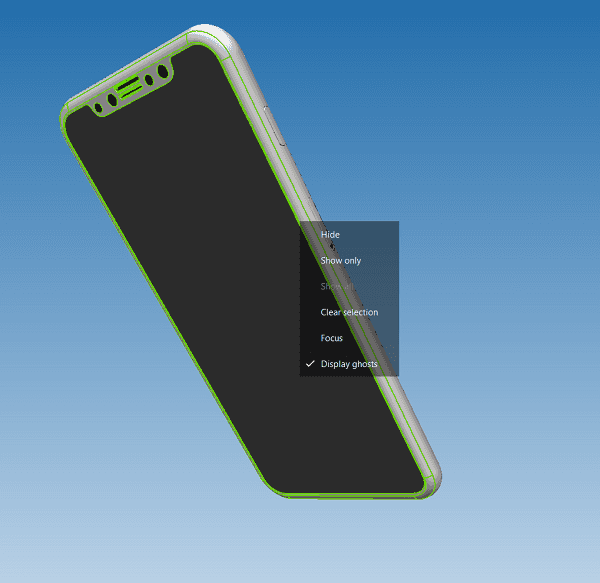
Ghost view
In previous versions hiding an object would totally turn it off and remove from the scene. The new release introduces an option of a “ghost view” when hidden objects remain on the scene but displayed with semi-transparency (what makes them look like ghosts). This behavior greatly improves convenience when working with complex assemblies with multiple nested parts and sub-assemblies. The user may choose between the new ghost and the old style views.
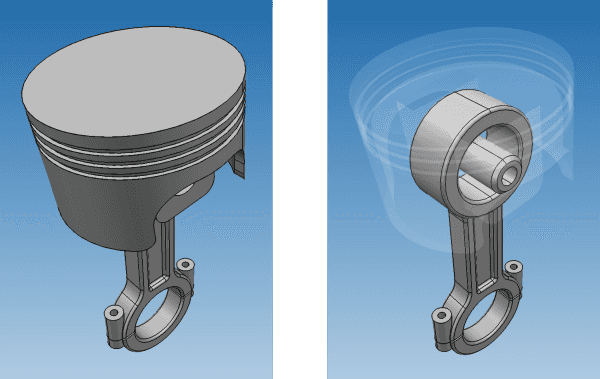
Finer grain selection modes for B-Reps – bodies and faces
When working with B-Rep representations in 3D view, users can now activate a selection mode either per entire “body” or per individual “face”. The switch is located in the display menu:
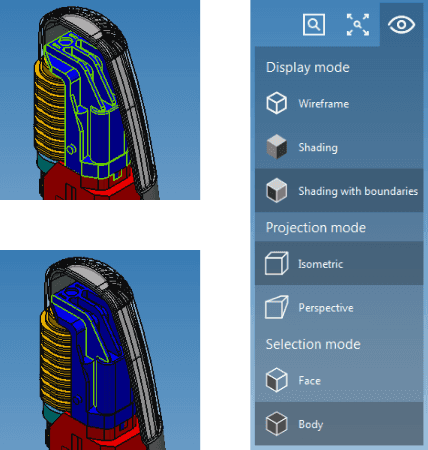
Deeper exploration of polygonal representations
Up to now, working with files containing polygonal representations (e.g. imported from STL, VRML, OBJ and often from JT) was limited to exploring a product structure (assemblies and parts). Version 3.4 now enables deeper navigation inside the part to see individual triangulation sets, changing their colors, computing bounding box and so on.
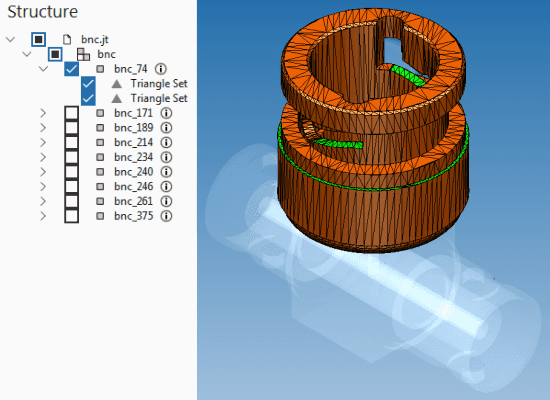
Measurements: analytical surfaces
As our customers effectively use measurement features introduced in previous releases we try to keep up with their requests. Version 3.4 introduces measurement of radii of analytical surfaces (cylinders, cones, spheres, torii):
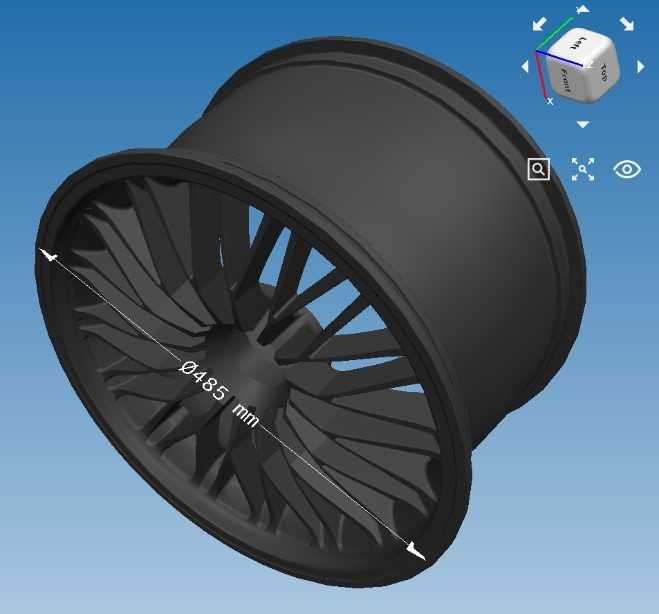
Moreover, CAD Exchanger will now automatically recognize analytical surfaces among NURBS or generic surfaces of revolution encoded by sending CAD systems.
Measurements: angles
Two approaches to measure an angle are supported. The first uses two planar surfaces and measures the angle between them, second takes three input vertices.
CAD Exchanger SDK
Improved C# and Java support

In addition to C++ inquiries, we continue to receive requests on C# and Java. We worked closely with some of our prospect users to streamline support for these programming languages and to simplify integration of CAD Exchanger SDK in their C# and Java apps.
Improvements include more convenient API access, streamlined packaging of C# and Java libraries, updated examples and documentation, improved C# interoperability across.NET Framework and Windows versions and various other items.
Although C++ remains an underlying SDK programming language binding with these two other languages is getting as efficient.
New API
As customers integrating SDK are requesting broader functionality to support their use cases we are happy to meet those requests by offering easy-to-use API for productive development.
Version 3.4 delivers new API to support manipulation of geometrical primitives (translation, rotation, mirroring, etc), curve and surface evaluation (values, derivatives, normals, etc), bottom-up B-Rep creation (from vertex to solid), conversion from analytical to NURBS representation and other enhancements.
New examples
CAD Exchanger SDK 3.4 introduces a Qt/QML-based 3D viewer that demonstrates how 3D models can be visualized in QML applications even without any users’ visualization code.
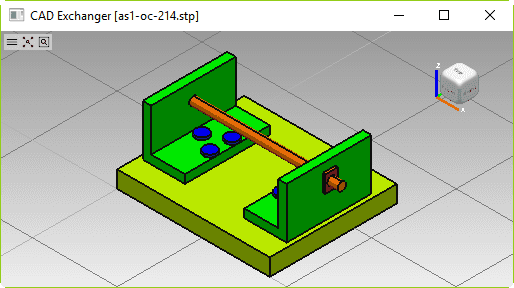
The example demonstrates gradual import and display of complex assemblies as supported in CAD Exchanger GUI.
The other example demonstrates bottom-up creation of B-Rep models, when the user wants to retain maximum control of the creation process and to really implement a step-by-step workflow from a single vertex up to a solid body.
New supported configurations
Version 3.4 now supports the gcc compiler of version 5 and 6 on Linux.
All the new SDK features are documented in CAD Exchanger SDK User’s Guide
Individual converters
As usual, we keep on raising the quality and performance bar with every release, and the version 3.4 was not an exception. Some highlights of individual converters:
- IGES: a new file parser has been implemented as part of the new version V2 introduced this year, which delivers significant performance improvements by leveraging parallelism on multi-core machines
- STEP: colors are now supported when reading/writing facetted_brep’s (which map to/from polygonal representations);
- OBJ: enhanced export of assemblies by assigning individual names to parts to improve interoperability with third-party OBJ readers;
- Rhino: added an option to ignore p-curves in the case of inconsistent 3D/2D curve representations created by a sending CAD system.
One More Thing…
We are delighted to introduce CAD Exchanger Cloud!
We were working hard on making it happen and recently launched a limited private invitation-based Beta program. Although it currently misses some features available in CAD Exchanger GUI, it will deliver new exciting cloud-focused ones to facilitate collaboration and data access.
We invite all our existing customers to give it a try (by visiting cloud.cadexchanger.com) and share your feedback. We are still in early steps of this journey and your feedback will be of tremendous value for our team!
Hope you will enjoy using CAD Exchanger 3.4 release as we were developing it.
Thank you for your business with us!